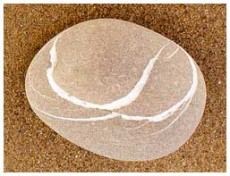
As soon as one of my dear friends posts on Facebook about her “sad and complicated life,” I think, “she must be doing what she and I discuss a lot: telling herself stories.”
How often do we do that? And how often are those stories negative about ourselves? About what we do wrong and how we are not good enough, smart enough, tall enough, short enough, kind enough, worthy enough, and how life will never improve because we screwed up? Do you know those stories? With no idea about her thinking, I jump on the phone. ‘Wanna walk?”
Instantly, she says, “Yes. Where? When? What’s your schedule for the next few days?”
The next few days doesn’t offer immediate presence, so I say, “how about now?”
“Ok, that takes care of when, but where?”
I ask, ”Where are you?”
She says, “in my car headed to my house but I can turn around and come to you.”
“Let’s meet at our usual place by the bay in 20 minutes.”
When I arrive, I see her sitting in her car, alone, gazing at her phone.
She sees me, hops out of her car and we hug. A big hug, the kind you can feel, a long one, the kind that means, “I’m here for you. You matter to me. I’m glad to be with you. “
We begin our walk-talk. I haven’t seen her in weeks yet we start where we left off. At one point she stops our flow of her kids, my kids, grandkids, health updates, financial markets, and says, “you know you’re interrupting my narrative.”
I smile. “Oh, the narrative that no one loves you, that you have no friends, and what the heck are you doing with your life, probably wasting it, ruining it?”
She says, “Ya, that one.”
“Oh,” I say, “when I work with my teachers, and someone in the group starts with this all-too-human whopper, they say, ‘welcome to the club.’ And if group members state a goal of wanting to get rid of this repetitive pattern, the more sarcastic teachers say, ‘lots o’ luck.’”
I know enough not to press for the story’s details. We all have them. I know mine well. We simply walk, talk, laugh, share. I am there for her. She knows it. She is there for me. I know it, can feel it. Sometimes to break up a heartbreak story, we do not need advice, “Do this. Then that. Have you tried this meditation? Did you go to yoga class this week to manage stress? Are you praying? Quit trying to save the world. Stop eating sugar.” Advice, not solicited, is judgment anyway, a way of saying, “I know better than you do what’s best for you, what’s right for you.”
What do we do when we see suffering and want to help? Of course, it depends on the suffering and the person. But here’s an idea: Wallace Stevens wrote, “perhaps the truth depends on a walk around the lake.”
Sometimes, we do not solve as in, “I will never think negatively of myself or my life again.” Sometimes what we need is human contact, is nature, is the presence of someone who listens and hears us with no better idea of what we should do.
At the end of our hour-long ocean-side walk-talk, we hug and agree, “we both need more human connection.”
I drive away wondering about disrupt another’s false narrative, not to correct it, but to enter an experience that helps a person update and expand the story. To be present.



Just reading this interrupted the narrative I woke up with. Thank you Sue